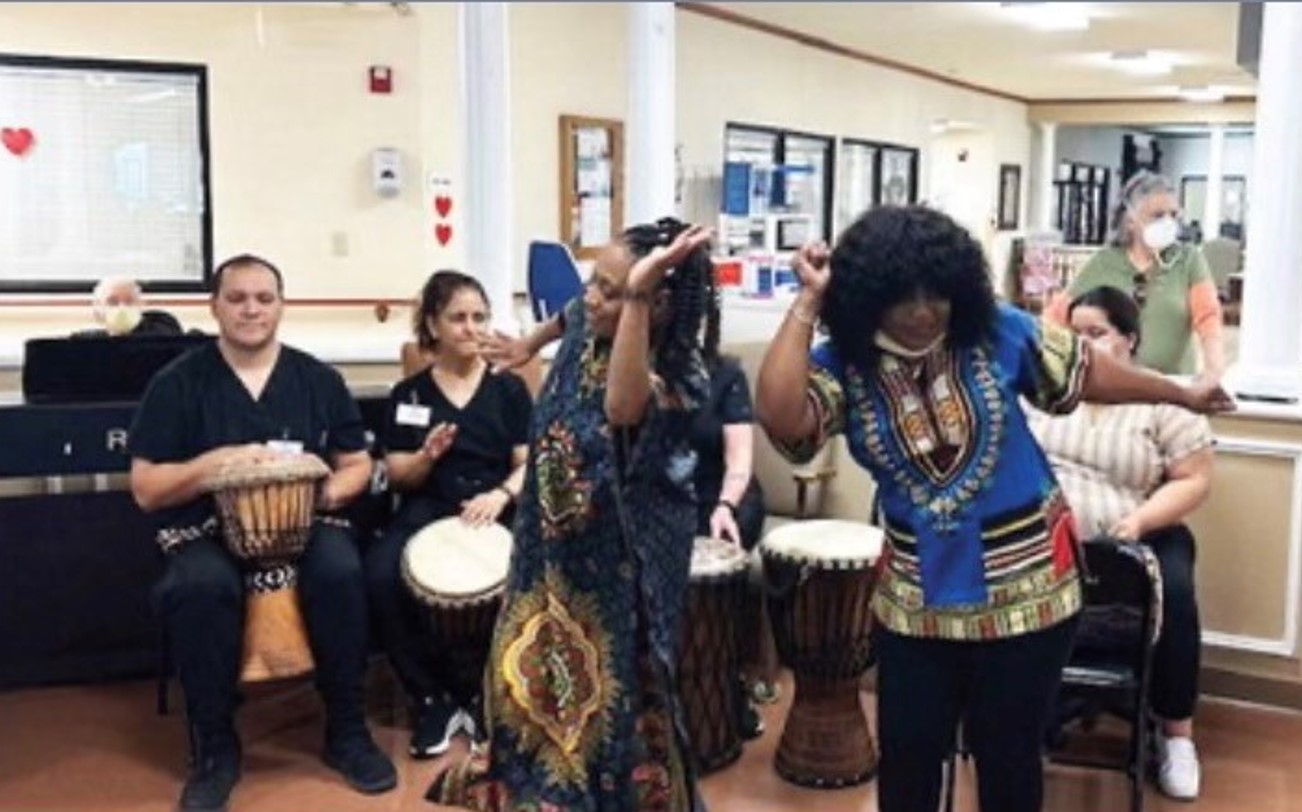Submitted by Lana Mathis, COTA, Therapy Director, Legend Oaks Healthcare, Kyle, TX
“Fanga Alafia, Ashé Ashé,” meaning “good health and peace to you”—a traditional West African call and response—echoes throughout Legend Oaks Rehabilitation and Healthcare in Kyle. During the month of February, drums could be heard in the halls as residents made their way to the dining hall or some moved in their bed. The message that we want to bring with Black History Month is: welcome, everybody.
Traditional African music was featured every Tuesday. One week, residents learned about famous Black Americans while also being exposed to soul and Cajun food all in honor of Black History Month, the first event of its kind to be held at the facility to benefit residents and employees alike. “In my seven years of working here, this is the first time we’ve ever come together to celebrate Black History Month,” said Christina Johnson, physical therapist assistant at Legend Oaks. “It was a collaborative effort. Because of these guys (other therapists), we’ve got a whole bunch of new staff that have great energy, great ideas and enthusiasm for the people and introducing everything to our residents.”
“The music helped benefit residents and employees alike in a myriad of ways,” said speech therapist Rachel Obstfeld. “Really learning about where we come from and why we do things ultimately just makes us care better overall. The patients actually enjoy it; they get excited about it. If you treat your patient like your friend or someone that you’re actually going to care for, you get better results.” Christina reiterated that the music itself has healing components.
The dancing is so connected to the African drumming in our culture. A lot of hip hop dancing originated from African cultural dancing, so I like to say, “Let the drum speak,” because the drum will bring medicinal feeling; it brings spiritual healing; it brings a connection. “A lot of our residents here have problems with their memory and a lot of them have dementia and other neurodegenerative disorders like Parkinson’s. Some people have had a stroke and a lot of the time, that limits their abilities to communicate and engage with the world around them the same way we do,” Obstfeld said. “Music has a really special way to access parts of the brain that aren’t otherwise active…so we really like to incorporate songs to help them know you have peace in your life and peace in your days.”

